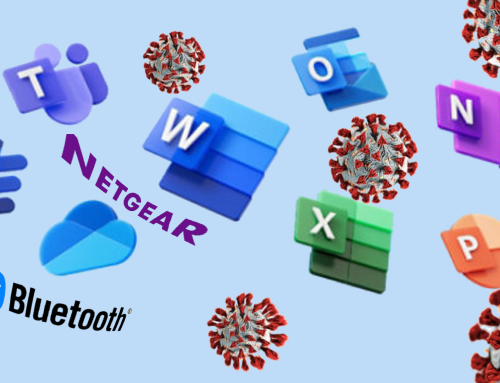Internet scams have been around since the dawn of the internet and they are no doubt here to stay. Below we have compiled the top 3 most prolific and most popular among cyber criminals internet scams being used in 2021.
At No.1 we have ‘The Nigerian Prince’ email scam
It might surprise you to learn that one of the oldest internet scams known as The Nigerian Prince is still being used and successfully nearly each and every day since it was first trailed back in 1996, and though plenty of us are all too aware of this scam, there are still plenty who are not. As of April 2018 it was reported that scammers defrauded victims by some $700,000 using this method and that figure is incredibly, on the rise. If you have never heard about The Nigerian Prince scam then the first question is, ‘where have you been for the past few decades?’
Joking aside, The Nigerian Prince scam that did originate from Nigeria and was quickly adopted by many fraudsters from across the globe, was and still is an extremely straightforward and basic form of internet scam. The scammer would send an email saying they are either a Nigerian prince who needs your help in a transaction or that they are the solicitor… managing the estate for someone who has recently passed away leaving millions, the deceased who shares the same family name as you has no other relatives and the money without your help will be unclaimed. In return for your help you would receive a large percentage of the inheritance.
Basically the long and short of it is the scammer attempts to get you to pay them a large sum of money which you believe will get the legal ball rolling to release the non-existent millions while they run off with your money.
No. 2 The rise in fake antivirus/tech support
Just like the first on our list, fake antivirus is by no means a new threat, but it has evolved and grown exponentially, coming in an array of different targeting forms from a fake invoice or offer of a refund in your inbox, a pop up banner on a webpage making you think a virus has installed on your computer, a cloned or phoney antivirus provider website, an antivirus solution suggested on a blog, or even suggested to you in Google’s own Ads in their search results, and the list goes on.
However the criminals most popular means of grabbing people’s attention in this scam is by telephone, and I’m sure many of you reading this would have received at least one of these types of calls everyday to your landline or mobile phone.
In the instances that a scammer has contacted you directly you will note that they have requested to speak to you, addressing you by your full name which inevitably is scary as to how they have that information to hand, though it can and does of course help aid the scammer, as not having your name, telling you there is a virus on your computer wouldn’t stack up quite so well.
So where do the scammers get this information from? Unsurprisingly the data was likely leaked from an email account or social network and shared among a network of scammers. Once the scammer has made contact with you or you contacted them via one of the Ads, banners or links, they will ask to gain access to your computer using the likes of TeamViewer or AnyDesk (remote access software). Once you have granted them access they will run a couple of standard system scans which will display normal registry and program information errors, IP addresses and so on in an attempt to scare the unsuspecting into believing there are problems with their security, and that hackers have full access to their computer.
If convinced you will be asked to make immediate payment for the software installation, basically they want you to login to your bank account while they are still connected to your computer. When you have logged in to your bank account the scammer blacks out the screen and attempts to transfer what money they can.
If it is a ‘refund’ you have been contacted about, the scammer will also request access to your computer and get you to login to your bank account, they will tell you how much the refund will be, while the screen goes blank, and they move money from one of your accounts to another, when the screen reappears it now looks like you have received a payment many times larger than the one you should have received, even though it was your money they moved in your account to begin with, the tech support scammer then makes out they have made a terrible mistake and the extra money needs to be refunded immediately, however they request that money be returned by iTunes vouchers or store cards, basically a means that is not easily traceable.
And finally at No.3 Phishing
Still by far one of the most popular internet threats is phishing and understandably so. By taking on the persona of a friend, family member, colleague or neighbour the cyber criminal is immediately able to gain your trust, in so doing being able to get you to click on a malicious link, to pass on private information, and so on.
The criminals use email, social media, text message, WhatsApp…, even LinkedIn to target the individual and siphon that info or to infect their computer.
Phishing was first discussed as an idea in a paper which was delivered to the International HP Users Group in 1987, and many studies on the concept soon followed, by 1995 Phishing was put to physical use when a windows application called AOHell was utilised in hacking AOL users, it allowed the attacker to pose as an AOL staff member so that they could send instant messages requesting private data from the individuals, asking them to confirm their billing address and or verifying their password.
It comes as no surprise that cybercriminals and their activities are on the rise, it’s a great means for anyone who lacks empathy or emotion to turn a quick buck off the unsuspecting and vulnerable.
However there are many ways to protect ourselves from these and other forms of internet scams and cybercriminals, inevitably never open a link in an email if it looks dodgy or you are unsure of it, and contact the individual who was sent the link if you know them just in case, if you don’t know the person that sent the link then avoid it altogether.
Never open links in emails from your bank, building society, PayPal, eBay, Amazon or the such like as generally speaking none of those mentioned will send you emails with clickable links or boxes, they actually recommend you go directly to their website and login to your account to view any messages.
If you receive a call from someone proclaiming to be from Microsoft or an antivirus software provider and you are unsure if the call is genuine or not, then hang up the phone, search for your antivirus providers contact number and give them a call instead.
And apart from the above, real antivirus software such as those that we recommend will help better protect your computers and devices from such threats, if you would like to find out more as to what you can do to better protect yourself and your business then why not contact us for an informal discussion.
Photo by John Noonan on Unsplash










